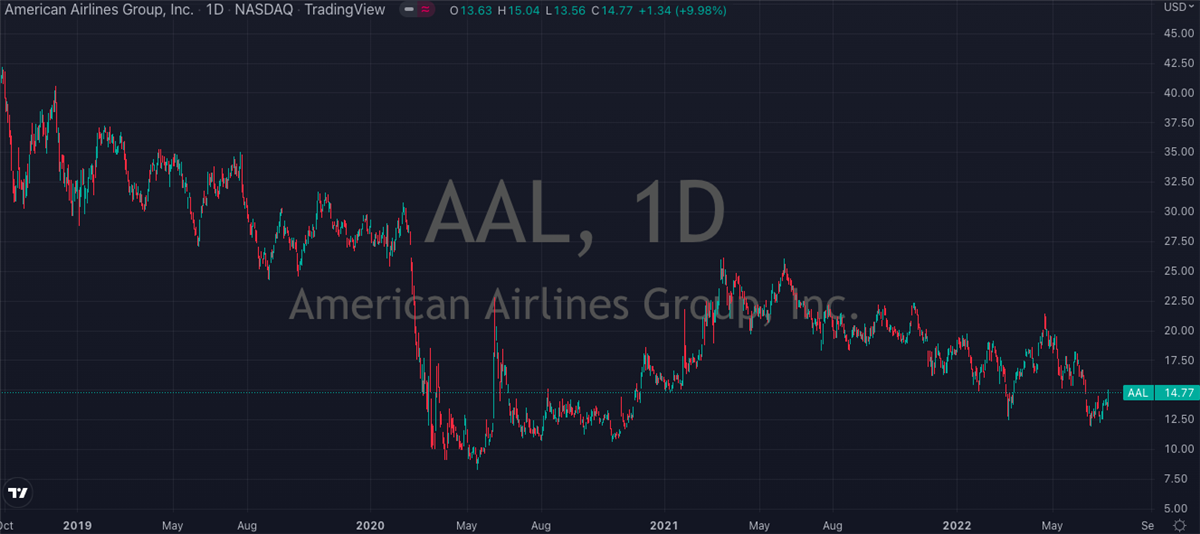 Just when the COVID pandemic was starting to appear further and further back in the rear view mirror, airline operators have been hit hard again during the prime business months of summer. After struggling for weeks with huge passenger numbers and too little staff, London’s Heathrow airport, Europe’s busiest, has asked airlines to discontinue summer sales to avoid further disruption.
Just when the COVID pandemic was starting to appear further and further back in the rear view mirror, airline operators have been hit hard again during the prime business months of summer. After struggling for weeks with huge passenger numbers and too little staff, London’s Heathrow airport, Europe’s busiest, has asked airlines to discontinue summer sales to avoid further disruption. For trans-Atlantic carriers this will be a body blow they probably weren’t expecting. But that’s not to say it doesn’t open up a potential buying opportunity for some of them. And for flyers operating mostly only in the US, this could be a chance for them to further the gap they have on their rivals. Let’s take a look at one from each category and see if they’re worth adding to your portfolio.
American Airlines (NASDAQ: AAL)
Up first is American (NASDAQ: AAL), part of that group of majors who’ll be hit hardest by the headlines from London. Their Q2 earnings are due out next week and investors will have a clearer picture of the internal numbers then, but for now at least the trends around its long-term stability are positive. Just yesterday, the company told investors they expect their quarterly revenue to be up 12% versus the same quarter in 2019, which was a welcome update. Airlines, among other front line industries affected the most by COVID, have been skipping 2020 when doing like for like quarterly comparisons, and this will have been a solid stat for them to share.
In addition, total revenue per available seat mile is expected to be up approximately 22.5% versus 2019's Q2, compared with the company’s previous guidance of up 20% to 22%. And overall, American’s management said they expect the company to earn $585 million in pretax income for the May-June quarter.
This surprise update was enough to send shares up close to 10% yesterday, on a day that saw the major indices shedding about 1%. This means that American shares are continuing to bounce off their lowest levels since the stock recovered from the pandemic inspired selloff back in March and April of 2020. It’s technically still in a downtrend, but with a solid low put in it’s not unreasonable for investors to expect shares to start testing resistance instead of support next.
Southwest Airlines (NYSE: LUV)
The other carrier that should definitely be on your watchlist, if not in your portfolio, is Southwest (NYSE: LUV). This column has written about the US flier’s consistent strength versus its more internationally focused peers several times in recent years, and it’s a tone we’ll be continuing here.
Whereas American shares are still down more than 50% from their pre-pandemic levels, Southwest shares are ‘only’ down 30%. This suggests Wall Street sees much more inherent strength in them that could justify their inclusion in the right kind of portfolio.
Indeed, it was only yesterday that the team over at Susquehanna upgraded Southwest shares from a Neutral rating to a Positive. This change was one of several they made during a sweep of the airline sector, a sweep that for context saw their price target on American shares dropped from $19 to $15. Analyst Christopher Stathoulopoulos said with the changes that “while we’ve yet to find any cracks in airline booking data, we believe that at some point consumers will have to contend with the economic reality of higher air fares, outsized general inflation, and potential layoffs in select industries (e.g., finance, tech, and media) into 2023."
They see this affecting the non-budget flier like American more than budget friendly fliers such as Southwest, whose various revenue initiatives and its break into corporate travel should bring fresh support to its share price. Southwest is also seen having ample liquidity to ride out a downturn, something that previous bullish comments on the stock have highlighted as well. Their shares are up about 14% from their low of last month and also on track to test the downtrend that’s been in place since their recovery peaked in April of last year.
It’s fair to say that both stocks are worth keeping on your watchlist, and depending on your tolerance for risk and investment timeline, there’s an argument for both being part of your portfolio.
